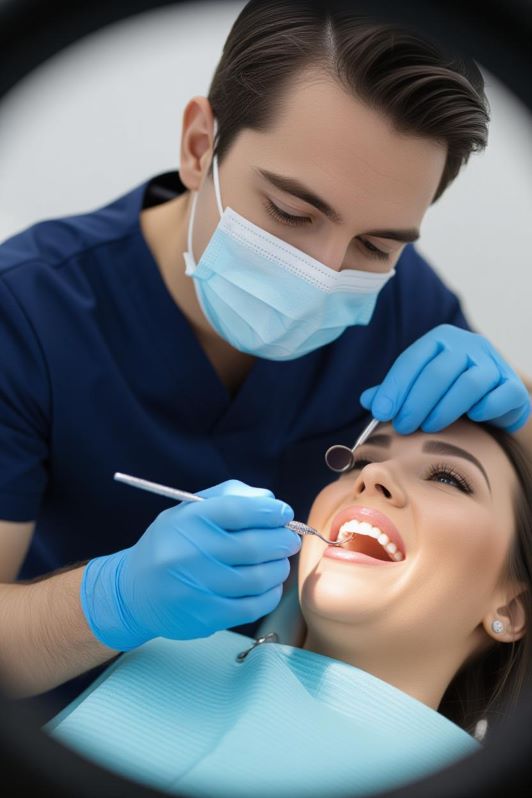Boost Your Immune System: Why Teeth Whitening NYC (and Good Oral Hygiene) Matters

Strong oral health is closely linked to a robust immune system. Studies show that untreated gum disease can increase systemic inflammation, making the body more susceptible to infections. Healthy teeth and gums are not just about a bright smile—they play a crucial role in overall wellness. This is why professional services like teeth whitening NYC can be more than cosmetic; they support oral health by removing plaque and bacteria along with stains.
1. Professional Teeth Whitening
Regular professional teeth whitening helps reduce bacterial buildup on teeth. While over-the-counter products may improve appearance, professional treatments at Lux Smiles ensure deeper cleaning and targeted stain removal. This keeps harmful bacteria from thriving, reducing the risk of gum disease and its systemic effects.
2. Daily Brushing and Flossing
Maintaining a consistent brushing and flossing routine is foundational. Brushing at least twice a day with fluoride toothpaste and flossing once daily removes food particles and plaque. These simple actions prevent cavities and inflammation, which in turn supports immune function.
3. Reduce Sugar Intake
Excess sugar can feed harmful bacteria in the mouth. These bacteria contribute to tooth decay and gum disease, which may trigger inflammatory responses throughout the body. Limiting sugary foods and drinks can help maintain a healthier oral environment and reduce unnecessary stress on the immune system.
4. Treat Gum Disease Promptly
Gum disease is linked to serious health problems like heart disease and diabetes. Seeking treatment as soon as symptoms appear—such as bleeding gums or persistent bad breath—can prevent complications. Lux Smiles offers comprehensive care to address early signs of periodontal disease, keeping both oral and overall health in check.
5. Eat a Nutrient-Rich Diet
A diet rich in vitamins and minerals supports healthy gums and teeth. Foods high in vitamin C, calcium, and antioxidants strengthen the body’s natural defenses. Leafy greens, citrus fruits, yogurt, and nuts all contribute to oral and systemic health, boosting the immune system naturally.
6. Manage Stress
Stress negatively affects immune function and oral health. Chronic stress can increase inflammation and reduce saliva production, which is essential for washing away bacteria. Simple stress management techniques, such as meditation, exercise, and proper sleep, help maintain a healthy mouth and stronger immunity.
7. Regular Dental Checkups
Routine visits to a trusted dentist allow early detection of issues. Professional cleanings and exams prevent minor problems from escalating. Lux Smiles combines these checkups with cosmetic and preventive treatments, ensuring a healthy mouth and a confident smile.
8. Combine Cosmetic Care with Health
Services like teeth whitening and veneers can also contribute to oral hygiene. By encouraging patients to maintain clean teeth and gums, these treatments indirectly support immune health. The aesthetic appeal often motivates better home care habits, creating a positive feedback loop for oral and systemic wellness.
READ ALSO: Why Dental Practice Stability Matters for Whole-Body Health
Conclusion
Good oral health strengthens your immune system and promotes overall well-being. Simple daily habits, professional treatments, and mindful nutrition all work together to reduce inflammation and fight bacteria. By incorporating services like teeth whitening NYC alongside regular dental care, New Yorkers can enjoy brighter smiles while boosting their immune defenses. Prioritizing oral hygiene is a step toward a healthier, more resilient body.





